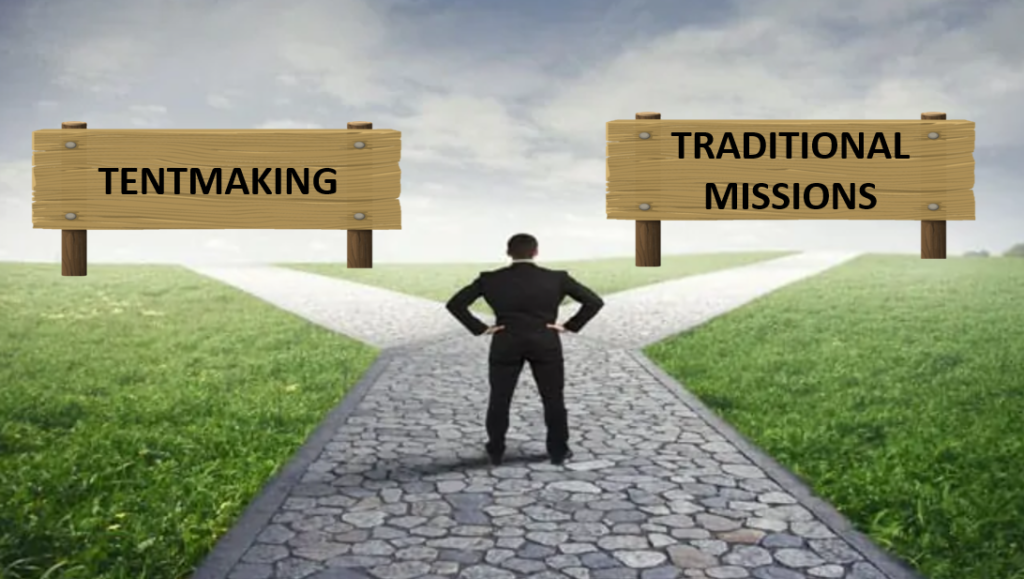
Aren’t traditional missions and tentmaking the same thing? What difference does it make what we call it? This question comes up when explaining what tentmakers do in a mission’s conference. Let’s look at it.
Generalizations can be dangerous. There are always exceptions. But it helps understanding to identify common characteristics.
SIMILARITIES
Both traditional missionaries and tentmakers have these things in common:
- They seek to bring God’s love to the lost. They are motivated by love for God and obedience to the Great Commission.
- They are sent out by the church to make Christ known to the ends of the earth.
- They teach the Gospel.
- They instruct people on what God says in the Bible.
- The work can only be done by Christ-followers.
In the most important ways, they are all doing the same work. They are all on the same team – building the Kingdom of God. 1 Cor 12:12 “Just as a body, though one, has many parts, but all its many parts form one body, so it is with Christ.”
DIFFERENCES
There are some significant differences in their methods and approach to accomplishing the task. This is because of the different roles the Spirit has given them to serve the King.
| Tentmakers | Missionaries |
| Paid from their earned salary | Paid from donations (often self-raised) |
| Are accountable to their secular employer for their work product. | Are accountable to the mission organization for their work product. |
| Can get a visa for any country | Visa limited to certain countries |
| Work in the marketplace | Largely work in, or in support of, the church |
| Make relationships – in the workplace and community | Run programs – for church growth, or human development (medical, leadership, education, etc.) |
| Make disciples (who learn to live a life obedient to the commands Jesus taught) | Plant churches or support church programs (usually measured in activities and/or knowledge) |
These practices allow them to connect with different kinds of people and introduce them to the Kingdom of God.
1 Cor 12:4-6 “There are different kinds of gifts, but the same Spirit distributes them. 5 There are different kinds of service, but the same Lord. 6 There are different kinds of working, but in all of them and in everyone it is the same God at work.”
RESULTS
As a result of different methods and styles we note the following.
- Approaches to making the Gospel known are different. They use different styles and methods to pursue to goal.
- Therefore, the accountability systems will be different. Many times, their preparation will be different. The way they engage the community will be different.
- In some cases, the care and support for them is different.
- We cannot treat them the same way.
When we understand the differences, it is easier to understand why it hard for traditional mission organizations to work with tentmaking.
CONCLUSION
1 Cor 12:12 “Now you are the body of Christ, and each one of you is a part of it.”
All Jesus’ followers have a place in fulfilling the Great Commission. Like the body ALL the parts are needed so that ALL may have an opportunity to come to Jesus. None are superior nor inferior to the other. Let us celebrate each other and work together for Christ and His kingdom
What would you change in this model?
By Phill Sandahl